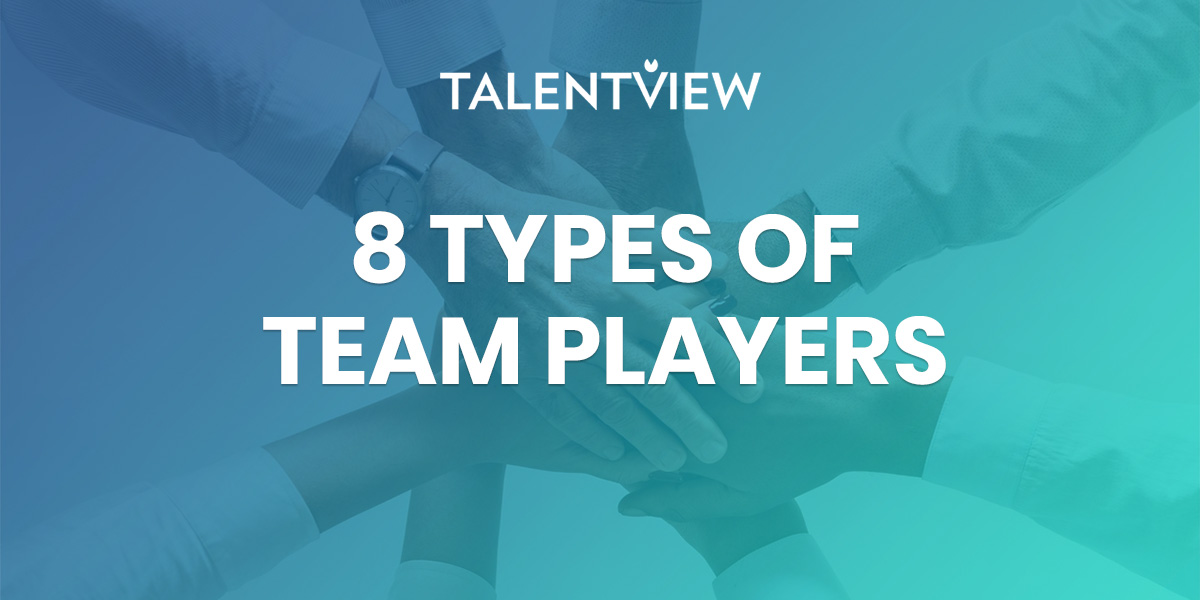8 types of team players
8 Types of Team Players
“The strength of the team is each individual. The strength of each individual is their team.”
Have you ever wondered why some teams excel while others seem to fail miserably? It is because not all teams are created equal.
Team members tend to behave, contribute, and interact with others in particular ways when working as part of the team or group. Organizations should therefore create teams that are effective and well-balanced by identifying specific roles that people should adopt.
Well-balanced teams are more likely to perform better than unbalanced teams.
Why is that? It is because balanced teams involve people who can adopt to varied roles.
Balanced teams tend to be more effective than unbalanced teams – that is, teams that include people who adopt varied team roles are likely to perform better. Furthermore, people may have more than one preferred team role. The role they adopt will depend partly on the composition of the team.
There are 8 main styles or roles that people are likely to adopt when working as part of a team:
1. Innovator
Innovators thrive on opportunities to display creativity and will be the first to propose new ways of doing things. These individuals are free thinking, imaginative, and may sometimes generate impractical ideas.
Innovators dislikes being constrained and prefer to leave the finer details to others.
Strengths:
Creative, imaginative, free-thinking, generates ideas
and solves difficult problems.
Weaknesses:
Might ignore incidentals, and may be too preoccupied
to communicate effectively.
Don't be surprised to find that:
They could be absent-minded or forgetful.
Famous Innovator:
Steve Jobs, Apple
2. Social Investigator
Social investigators are sociable and outgoing individuals with investigative tendencies. These individuals are ideally suited to investigate ideas and locate the human resources required to develop them further.
Social investigators are excellent networkers and adept communicators, using these skills to convince others of the importance of a project and guide them to share their knowledge.
Strengths:
Outgoing, enthusiastic. Explores opportunities and
develops contacts.
Weaknesses:
Might be over-optimistic, and can lose interest once
the initial enthusiasm has passed.
Don't be surprised to find that:
They might forget to follow up on a lead.
Famous Social Investigator:
Howard Schultz, Starbucks
3. Appraisers
Appraisers tend to be highly analytical individuals, and are suited to evaluate ideas and make critical, non-biased judgement on the effectiveness of these ideas. These individuals can come across as detached, but provide a useful and critical viewpoint on projects.
Appraisers are also very useful at analyzing problems and making suggestions.
Strengths:
Sober, strategic and discerning. Sees all options
and judges accurately.
Weaknesses:
Sometimes lacks the drive and ability to inspire
others and can be overly critical.
Don't be surprised to find that:
They could be slow to come to decisions.
Famous Appraiser:
Bill Gates, Microsoft
4. Orchestrator
Orchestrators are excellent at directing a team, without coming across as domineering.
These natural leaders are capable of guiding others towards their tasks, dealing with objections, and gaining the respect of the team.
Orchestrators understand the strengths and weaknesses of their team members and assign tasks to maximize the strengths. They are also seen as consultative and supportive in team situations.
Strengths:
Mature, confident, identifies talent. Clarifies goals.
Weaknesses:
Can be seen as manipulative and might offload their
own share of the work.
Don't be surprised to find that:
They might over-delegate, leaving themselves little
work to do.
Famous Orchestrator:
Jeff Weiner, LinkedIn
5. Initiator
Initiators are practical and efficient individuals who are excellent at taking plans and implementing them.
These individuals enjoy collaboration and are capable of managing subordinates. Initiators tend to work best with clear requirements and are comfortable working with detail.
Initiators prefer proven ideas and methodology and may sometimes be viewed as inflexible.
Strengths:
Practical, reliable, efficient. Turns ideas into actions
and organizes work that needs to be done.
Weaknesses:
Can be a bit inflexible and slow to respond to new
possibilities.
Don't be surprised to find that:
They might be slow to relinquish their plans in favor
of positive changes.
Famous Initiator:
Mark Zuckerberg, Facebook
6. Finisher
Finishers are highly conscientious workers who thrive on seeing tasks through to completion.
These individuals prefer to work on one task at a time, and enjoy being involved with the finer details of a project. Taking a systematic and orderly approach to completing projects, finishers like to work towards clearly defined goals with definitive starts and finishes and with little ambiguity.
Finishers do not enjoy distractions and may demonstrate some signs of strain when under pressure.
Strengths:
Painstaking, conscientious, anxious. Searches out
errors. Polishes and perfects.
Weaknesses:
Can be inclined to worry unduly, and reluctant to
delegate.
Don't be surprised to find that:
They could be accused of taking their perfectionism
to extremes.
Famous Finisher:
Larry Page, Alphabet (Google)
7. Collaborator
Collaborators are the key to successful team projects.
These individuals thrive on collaboration, and are open and helpful in team situations.
Acting to calm out breaks in team situations these cooperative and caring individuals will work to reduce tension so that tasks can be completed.
Strengths:
Co-operative, perceptive and diplomatic. Listens and
averts friction.
Weaknesses:
Can be indecisive in crunch situations and tends to
avoid confrontation.
Don't be surprised to find that:
They might be hesitant to make unpopular decisions.
Famous Collaborator:
Mark Parker, Nike
8. Driver
Drivers are very goal-focused and are constantly striving to achieve their targets. These individuals are excellent at overcoming obstacles and avoiding distractions. Drivers tend to be very action-oriented and driven.
They tend to shake up teams that are suffering from a lack of drive, but they have the potential to cause disruption in teams that are already motivated.
Strengths:
Challenging, dynamic, thrives on pressure. Has the
drive and courage to overcome obstacles.
Weaknesses:
Can be prone to provocation, and may sometimes
offend people's feelings.
Don't be surprised to find that:
They could risk becoming aggressive and
bad-humored in their attempts to get things done.
Famous Driver:
Jeff Bezos, Amazon
Over to you
“I can work as a part of a team” - this is a common sight found in many applicants’ resume. By measuring candidates’ fit to a team, recruiters will have an in-depth insight into a candidate’s potential as a good team player; allowing them to create more effective and successful teams.
Send a Sample Talegent Team Type Report to your inbox

TalentView is a leading employer branding firm with a mission of elevating human capital standards across the ASEAN region. Working directly with business leaders in Fortune 1000 companies,TalentView’s solutions help create and maintain exceptional experiences to attract, engage and retain their talent. Partnering with key global players including Workplace from Meta, The Bot Platform, Talegent, Indeed, Glassdoor, and Hootsuite.
Uncover Your Brilliance with us!




















